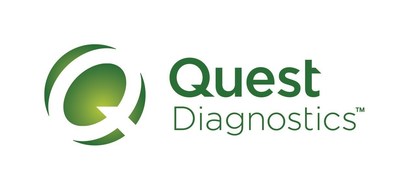Quest Diagnostics and Broad Clinical Labs to Evaluate Whole Genome Sequencing as First-Line Genetic Test for Developmental Delay
Aim to demonstrate whole genome sequencing can replace the standard diagnostic cascade, for potentially faster diagnosis and lower costs
The parties expect to demonstrate that WGS can provide insights—from a single blood test—that are at least as clinically accurate as the multiple conventional tests providers typically use to diagnose a patient.
"We are delighted to bring the experience and expertise of Broad Clinical Labs to this innovative collaboration with Quest. We believe that the genome is a platform upon which many research, screening, and diagnostic tests can be built resulting in benefits for patients and providers alike," said Niall J. Lennon, Ph.D., Chief Scientific Officer of Broad Clinical Labs and Senior Director of Genomics at the Broad Institute of MIT and Harvard.
"WGS has the power to enable a new diagnostic paradigm, where a physician can access genetic insights faster on the patient's diagnostic journey--without multiple doctor visits and lab tests," said Mark Gardner, Senior Vice President, Molecular Genomics and Oncology at Quest Diagnostics. "Broad is the leader in genomic science and Quest is the leader in laboratory testing at scale, so together we have the right combination of skills to explore the potential of WGS to replace the conventional model."
"This research initiative by Broad and Quest involves both phenotypic and genotypic data sharing in an effort to further enhance interpretation of genomic tests and the understanding of development delay," said Heidi Rehm, Ph.D., FACMG, Medical Director of Broad Clinical Labs, and Chief Genomics Officer of Massachusetts General Hospital. "This type of collaboration between commercial laboratories and research institutions is vital to advance the field of genetic testing and increase utility and economic value."
Creating a New Testing Model to Simplify and Speed Diagnosis
Nearly
While the ACMG recommends WGS for first-line genetic testing for intellectual disability and developmental delay, some providers continue to follow prior guidelines that recommend chromosomal microarray (CMA) as a first-line test. CMA is less informative than WGS, and patients whose findings are negative by CMA can require additional rounds of testing, such as with narrow gene tests or genetic panels or exome sequencing, until a cause is found.
"Now that the
Through the collaboration, Quest will provide de-identified data, including phenotypic (a person's observable traits), and blood, saliva, and buccal swab specimens it has tested for developmental delays using CMA and other tests. Broad will then perform WGS on the de-identified specimens to determine concordance between the methods.
The collaboration will also explore the potential of WGS to provide answers for Fragile X syndrome. Unlike CMA or exome sequencing, WGS can rule out Fragile X as a cause of developmental delay and signal the need for additional confirmatory testing in those whose results suggest it as a possible cause of developmental delay.
Broad Clinical Laboratories, previously known as Clinical research sequencing platform, was founded in 2013 as a non-profit subsidiary of Broad Institute of MIT and Harvard to accelerate the genomics community and the world toward a better understanding, diagnosis, and treatment of disease by pursuing projects, developing products, and driving adoption of cutting edge -omics technologies and novel molecular assays.
Broad Clinical Labs is a leader in human whole genome sequencing, having sequenced over 600,000 genomes in service of its mission to accelerate the understanding and diagnosis of human disease. www.broadclinicallabs.org
About Quest Diagnostics
Quest Diagnostics works across the healthcare ecosystem to create a healthier world, one life at a time. We provide diagnostic insights from the results of our laboratory testing to empower people, physicians and organizations to take action to improve health outcomes. Derived from one of the world's largest databases of deidentified clinical lab results, Quest's diagnostic insights reveal new avenues to identify and treat disease, inspire healthy behaviors and improve healthcare management. Quest Diagnostics annually serves one in three adult Americans and half the physicians and hospitals in
![]() View original content to download multimedia:https://www.prnewswire.com/news-releases/quest-diagnostics-and-broad-clinical-labs-to-evaluate-whole-genome-sequencing-as-first-line-genetic-test-for-developmental-delay-302104806.html
View original content to download multimedia:https://www.prnewswire.com/news-releases/quest-diagnostics-and-broad-clinical-labs-to-evaluate-whole-genome-sequencing-as-first-line-genetic-test-for-developmental-delay-302104806.html
SOURCE Quest Diagnostics








